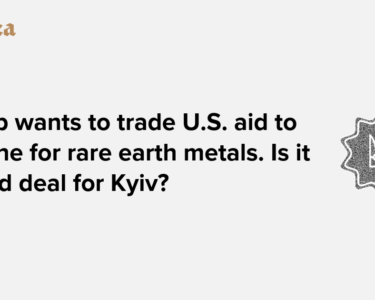The winding narrow roads of Los Altos Hills are shadowed and dark, making driving through them a focused effort. Not because of a lack of electricity. Los Altos Hills is one of the most expensive zip codes in the Bay Area — and in the United States — known for its large 1-acre plus estates and its conscious countryside appeal. It’s where the founders and top executives of Big Tech live. It’s where President Joe Biden made a stopover in February to raise funds for his upcoming election.
Residents here prefer stargazing and living a lifestyle that’s more countryside than urban. Hence the dark roads. Driveways pass by me, slivers of light sometimes escaping from estates hidden deep behind thickets, in the shadows of ancient trees. The GPS drops me in a clearing next to a barn, where luxury cars are casually parked.
Something is wrong. I was expecting AI geeks, I’m seeing horses instead. I peer into my phone, urging it to give me answers — to send me to the Fremont Hills Country Club, where the event is. The skies thunder threateningly, as I get out of the car and take a rough path, peer into my smartphone, and walk across the parking.
Some steps down, I reach well-lit lawn tennis and pickleball courts. A gentleman with a pickleball racket points to a huge old-world-style building below us. Two men, their shoulders stooped with laptop bags make their way into it. That’s it, I exclaim. I enter the building and take the stairs to the second floor, walking into a high-ceiling reception where about 150 people mingle.
I’m at an AI symposium organised by one person – Murray Newlands — an entrepreneur who moved from England 15 years ago, ran a startup and in 2022 founded Open Future Forum to build a post-pandemic community around AI. The aim was to eventually launch his own fund. The AI community started two years ago at a local pub in Palo Alto over beers, where I first met Newlands — just before it all blew up, thanks to OpenAI launching ChatGPT and showing a commercial application of an AI model.
Ever since then, AI has been a term on everyone’s lips, across the world, and it is in meetups like this that new directions to the technology are being explored in the Valley. The agenda for the evening is big. According to the organiser, more than 40 venture capitalists are at the event including big names like SoftBank, Y+, Yes VC and Fusion Fund, looking for the next big thing.
Newlands had sent an email to all founder attendees of the event — anyone could self-nominate and talk about their startup, if they felt like it. (The tickets were only sold to startup founders who had secured $1 million in funding or had a monthly recurring revenue of $20,000, so there was some preselection.)
The event begins with a panel followed by rather geeky presentations. Some founders mumble their way through, and some have slides filled with tiny text, rendering them unreadable. Having attended many polished business events, this place of business, where any founder can present an idea to 40 potential funders, without worrying about presenting skills, sleek slides or even ironed clothes is frankly refreshing.
I continue to marvel at how visually the tech industry maintains its anti-incumbent image, even though the industry has become more powerful than the more formal political or financial industry that lives on the East Coast of the United States. Perhaps somewhere this anti-establishment attitude — misleading in current times as it might be — also gives this industry its ability to take risks, be nimble, accept new people and new ideas, be optimistic and constantly disrupt.
Each founder has five minutes, so presentations conclude quickly. There’s a pitch about developing an AI-enabled operation system for nonprofits to raise funds. Another wants to use AI in animation and 3D characters, while another wants to use generative AI to turn global accents of English into a standardised English accent.
Most of these startups are focused on building ‘AI agents’ – a software program on top of the AI model, that can collect data, and use this data to perform specific tasks. “Now is the moment when the AI startups which will define our future for the next 20-30 years are being born,” exclaims Newlands. Increased competition in the field, thousands of emerging startups and strong teams will change the game of the future, he feels.
Newlands’ right. AI feels like California’s new gold rush. The technology has evolved enough to turn it into a profitable business that can disrupt just about any industry. Startups, which want to integrate AI with blockchain, cybersecurity, fintech, robotics, IoT and enterprise applications, are mushrooming. There are ambitious founders in this event who have come from all parts of the world – Vietnam, Germany, Croatia, China, India and South Africa – with dreams of wanting to make it big in the Valley. And there are ample VCs, angel investors, and other funds on the lookout for that next big unicorn.
Seeing the tech optimism around AI, Ather, one of the few women founders in the room, who moved to the Valley from her country Vietnam temporarily, has decided to stay for a while. Within two months, she’s found two co-founders for her idea – one from India, one from China. “Where else in the world is this possible? We can create anything here. The future is here!” she says. This tech-optimism is infectious and pervasive in most events I’ve visited in Silicon Valley.
Hoping to ride this wave of optimism is Ravi Ramachandran, a Silicon Valley-based entrepreneur, who left his job last year with Data Bricks to launch a startup – August Data. Like Newlands, he also runs a community of ‘AI agents’ developers. “There are two strong trends happening in the AI community right now,” he tells me. One is the ‘AI agents’ one, but the other is the ability for software to work on multiple AI models – from ChatGPT to Gemini.
“That’s the holy grail for AI developers right now,” he says. Before I leave, I chat with Vasudha Badri-Paul, founder of Avatara AI, who calls herself a reluctant CEO. In her 50s, she has been a big tech careerist in sales and marketing and is now bootstrapping an AI startup. For, why not?
On my way out, Newlands informs me that he’s become a general partner with Y+ Ventures in the Valley – his dream of beginning a fund has come true within two years! A few weeks later, I found out that two of the startups that presented there — UnifyGPT and ThirdEar AI – were funded by venture capitalists.
Horses neigh as I start my car, perhaps feeling the excitement in the majestic reception hall a hundred metres from them. In this world, if you dream big of AI and work towards it, you will find yourself with success and maybe an estate in the star-lit, tree-shrouded, Los Altos Hills.
Shweta Taneja is an author and journalist based in the Bay Area. Her fortnightly column will reflect on how emerging tech and science are reshaping society in Silicon Valley and beyond. Find her online with @shwetawrites. The views expressed are personal.



